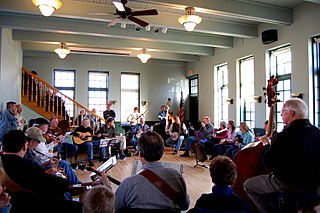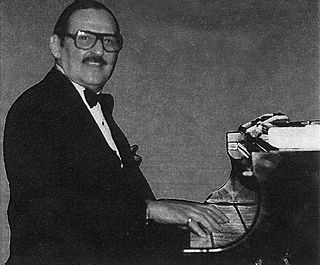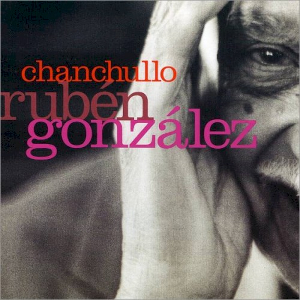A descarga is an improvised jam session consisting of variations on Cuban music themes, primarily son montuno, but also guajira, bolero, guaracha and rumba. The genre is strongly influenced by jazz and it was developed in Havana during the 1950s. Important figures in the emergence of the genre were Cachao, Julio Gutiérrez, Bebo Valdés, Peruchín and Niño Rivera in Cuba, and Tito Puente, Machito and Mario Bauzá in New York. Originally, descargas were promoted by record companies such as Panart, Maype and Gema under the label Cuban jam sessions. From the 1960s, the descarga format was usually adapted by large salsa ensembles, most notably the Fania All-Stars.

A jam session is a relatively informal musical event, process, or activity where musicians, typically instrumentalists, play improvised solos and vamp on tunes, songs and chord progressions. To "jam" is to improvise music without extensive preparation or predefined arrangements, except for when the group is playing well-known jazz standards or covers of existing popular songs. Original jam sessions, also 'free flow sessions', are often used by musicians to develop new material (music) and find suitable arrangements. Both styles can be used simply as a social gathering and communal practice session. Jam sessions may be based upon existing songs or forms, may be loosely based on an agreed chord progression or chart suggested by one participant, or may be wholly improvisational. Jam sessions can range from very loose gatherings of amateurs to evenings where a jam session coordinator or host acts as a "gatekeeper" to ensure that only appropriate-level performers take the stage, to sophisticated improvised recording sessions by professionals which are intended to be broadcast live on radio or TV or edited and released to the public.

Israel López Valdés, better known as Cachao, was a Cuban double bassist and composer. Cachao is widely known as the co-creator of the mambo and a master of the descarga. Throughout his career he also performed and recorded in a variety of music styles ranging from classical music to salsa. An exile in the United States since the 1960s, he only achieved international fame following a career revival in the 1990s.
The danzón-mambo is a subgenre of Cuban dance music that marked the transition from the classical danzόn to the mambo and the cha-cha-chá. It was also in the context of the danzón-mambo that the Cuban dance band format called charanga reached its present form.
Orestes López Valdés, nicknamed Macho, was a Cuban multi-instrumentalist, composer and bandleader. As a double bassist he was a founding member of the Havana Philharmonic Orchestra, and later a member of the National Symphony Orchestra of Cuba. A long-time member of the charanga Arcaño y sus Maravillas, where he played cello and piano, he is considered the co-creator of the mambo, together with his brother Israel "Cachao" López, and one of the most prolific danzón composers of the 20th century.
Tempo Latino is a festival of salsa music and Latin music in Vic-Fezensac, France.

Alfredo "Chocolate" Armenteros was a Cuban trumpeter. He played with artists such as Arsenio Rodríguez, Generoso Jiménez, Chico O'Farrill, Orchestra Harlow, Eddie Palmieri and Cachao. Due to his characteristic approach to Afro-Cuban trumpet playing as well as his extensive recording career, several monographs have been written on his music.
Generoso Jiménez García, commonly known as Tojo, was a Cuban trombonist, bandleader and arranger. He was a member of Beny Moré's Banda Gigante and a frequent collaborator of musicians in the descarga scene such as Cachao. Producer Nat Chediak described Tojo as "the father of the creole trombone".
Federico Arístides Soto Alejo, better known as Tata Güines, was a Cuban percussionist, bandleader and arranger. He was widely regarded as a master of the conga drum, and alongside Carlos "Patato" Valdés, influential in the development of contemporary Afro-Cuban music, including Afro-Cuban jazz. He specialized in a form of improvisation known as descarga, a format in which he recorded numerous albums throughout the years with Cachao, Frank Emilio Flynn, Estrellas de Areito, Alfredo Rodríguez and Jane Bunnett, among others. In the 1990s he released two critically acclaimed albums as a leader: Pasaporte and Aniversario. His composition "Pa' gozar" has become a standard of the descarga genre.
Pedro Nolasco Jústiz Rodríguez, better known as Peruchín, was a Cuban pianist specializing in jazz-influenced Cuban popular music. He was an important figure in the 1950s descarga scene in Havana, and one of the most influential Cuban pianists of the 20th century.

Julio Gutiérrez was a Cuban music director, pianist, composer and arranger. He was one of the main figures in the music scene of Havana in the 1940s and 1950s, and a pioneer of the descarga. As a songwriter, he is remembered for his 1944 bolero "Inolvidable", which has been performed by numerous artists.

Cuban Jam Sessions in Miniature is the debut album by Cuban double bassist Cachao, released in 1957 by Panart. The album is composed of descargas, improvised jam sessions with Cuban themes. It was the fourth installment in Panart's Cuban Jam Session series after Julio Gutiérrez's Cuban Jam Session Vol. 1 and Vol. 2, and Niño Rivera's Vol. 3. Unlike the other installments, Cachao's session comprised short improvisations instead of extended jams. The album sold over a million copies and became "a Latin music milestone". In 2013, it was induced into the Latin Grammy Hall of Fame and the National Recording Registry.
Francisco Emilio Flynn Rodríguez, better known as Frank Emilio Flynn, was a renowned Cuban pianist. Despite being blind, he was a skilled and versatile pianist who mastered many forms of Cuban music, from danzas and danzones to filin, descarga and Afro-Cuban jazz. He was the founder and director of several ensembles, including Loquibambia (1946) and Los Modernistas (1951), both co-founded with José Antonio Méndez, as well as the Quinteto Instrumental de Música Moderna (1958), which later became Los Amigos.

Superimposition is the twelfth studio album by American pianist Eddie Palmieri. It was released by Tico Records in 1970. The album combines modern salsa renditions of Cuban standards on side A with experimental descargas on side B. Since its release, the album has been praised by critics such as John Storm Roberts for its innovative approach.

Chanchullo is a studio album by Cuban pianist Rubén González. It was recorded over the course of three years under the direction of trombonist Jesús "Aguaje" Ramos, and released on September 19, 2000, through World Circuit.

"Chanchullo" is a danzón-mambo composed by Cuban bassist Israel "Cachao" López. It was first released as a single in 1957 by Arcaño y sus Maravillas. It was the third single released on Cuban independent record label Gema and has been covered by multiple artists including Tito Puente, Típica '73 and Rubén González. Puente himself reworked the song as the successful "Oye cómo va", later recorded by Santana, for which Cachao received no credit. Instrumental versions of the song have been recorded variously under the titles "Mambolandia" and "Mambología", often credited to Peruchín.
"Social Club Buenavista" is a danzón composed by Cuban bassist Israel López "Cachao". It is one of his many compositions dedicated to a Cuban venue where he frequently played as part of the charanga Arcaño y sus Maravillas. It has become a standard of the genre, being regularly performed by artists such as Frank Emilio Flynn and Rubén González throughout the 20th century. Although composed during the 1940s, it was first recorded in 1958 by Cachao himself, along with several former members of las Maravillas, for the album El Gran Cachao, released by Kubaney.

Arcaño y sus Maravillas was a Cuban charanga founded in 1937 by flautist Antonio Arcaño. Until its dissolution in 1958, it was one of the most popular and prolific danzón orchestras in Cuba, particularly due to the development of the danzón-mambo by its two main composers and musicians: Orestes López and his brother Israel López "Cachao" (bass). Such upbeat version of the danzón served as a precursor of the mambo popularized by Pérez Prado, as well as the chachachá created by Enrique Jorrín, a violinist who started his career in the Maravillas. Other important musicians in the Maravillas were pianist Jesús López, timbalero Ulpiano Díaz, violinist Félix Reina and flautist Eulogio Ortiz.

Cachao y su Descarga 77 is the first album recorded as a leader by Cachao in the United States, following his exile from Cuba in 1961. It was recorded in July 1976 under the supervision of musicologist René López, who was responsible for organizing the sessions. The LP was released in 1977 by Salsoul to critical acclaim. The songs included in the release are in the descarga format, i.e. improvised jam sessions, and were performed by a predominantly Cuban lineup featuring trumpeter Alfredo "Chocolate" Armenteros, percussionist Carlos "Patato" Valdés and flautist Gonzalo Fernández, among others.
Juan Pablo Torres Morell was a Cuban trombonist, bandleader, arranger and producer. He was the director of Algo Nuevo and a member of Irakere, two of the leading exponents of songo and Afro-Cuban jazz in the 1970s and 1980s. He has also directed various Cuban supergroups such as Estrellas de Areito and Cuban Masters. He has been called "one of the best trombone players in the Latin-jazz community of the 1990s".









